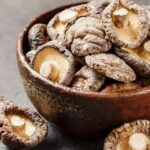Oysters: Nutritional Value and Precautions
**Nutritional Value of Oysters**
According to traditional medicine, oysters are cooling and non-toxic. They are believed to have aphrodisiac properties and are used to treat insomnia caused by heat, dryness, thirst, dizziness, and blurred vision. Oysters are also beneficial for women experiencing peri-menopausal symptoms, postpartum anemia, and lactation issues. For men, oysters are a good source of nutrition, boosting immunity and increasing strength.
In modern medicine, oysters are recognized for their rich content of vitamins and organic compounds, including zinc, protein, iron, copper, selenium, B-complex vitamins (B1, B2, B3, B12), vitamin C, vitamin D, phosphorus, calcium, potassium, and omega-3 fatty acids, as well as good cholesterol.

Oysters: A Nutritious Delicacy
**Precautions: Who Should Avoid Eating Oysters?**
While oysters offer a plethora of nutrients, they may not be suitable for everyone. The following groups should refrain from consuming oysters:
– Individuals with a history of seafood allergies;
– People with chronic liver disease;
– Those with underlying medical conditions who are taking immunosuppressant medication;
– Individuals with weak digestion, indigestion, or diarrhea (oysters’ cooling nature can cause stomach discomfort and exacerbate diarrhea);
– People suffering from gout or arthritis.
**Additional Considerations When Consuming Oysters**

Important Precautions When Eating Oysters
*- Avoid Raw Oysters:*
Raw oysters are a popular delicacy, and some believe that consuming them raw maximizes their nutritional benefits. However, raw oysters may harbor bacteria and parasites, and condiments like mustard, lemon juice, or soy sauce do not effectively eliminate these pathogens. Consuming raw oysters carries a risk of food poisoning and parasitic infections. Additionally, mustard can irritate the mucous membranes of the nose and throat, causing damage if consumed in excess. It is advisable to cook oysters thoroughly to eliminate any potential pathogens.
*- Don’t Overindulge:*
While oysters are highly nutritious, moderation is key. Oysters contain significant amounts of cholesterol, with 170 grams of oyster meat containing up to 85 mg of cholesterol. Enjoy oysters in moderation to maintain a healthy balance.






































